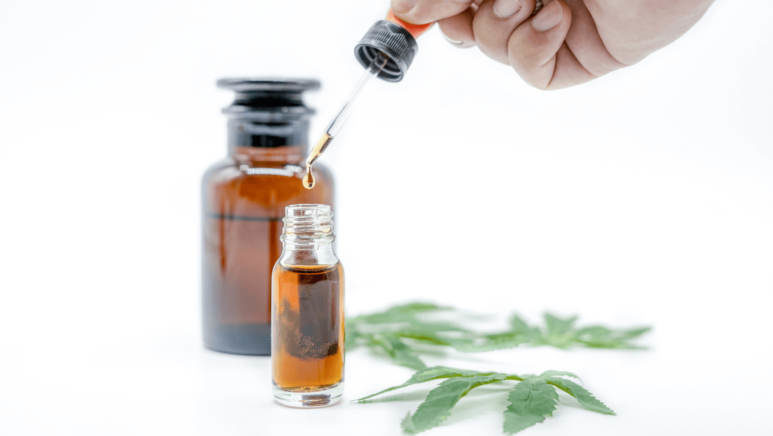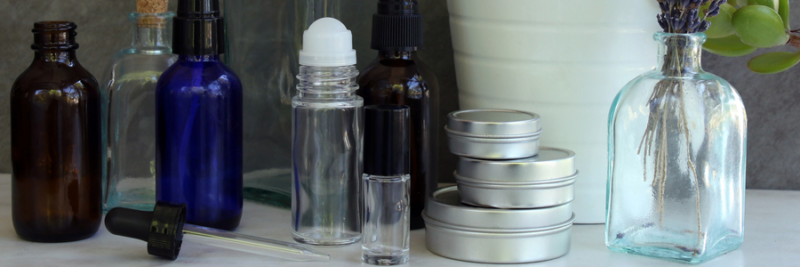Buy One Get One FREE on Everything. Use Code BOGO1
![]()
![]()


The hottest new trend in herbal and natural products is ‘Cannabidiol‘ or CBD. This compound is one of the many cannabinoids found in cannabis plants. It has a similar molecular structure to the infamous THC (Delta-9-tetrahydrocannabinol). Fortunately, besides THC, no other cannabinoids are considered psychoactive.
What is THC and CBD?
CBD may be derived from hemp plants or marijuana plants. Legally, marijuana plants are the ones with more than 0.3% THC by dry weight. Hemp plants are the family of cannabis plants with less than or equal to 0.3% THC. Marijuana gets you high but hemp doesn’t.
Whether extracted from marijuana or hemp, CBD molecules are the same. They are non-psychoactive. Still, CBD oils derived from marijuana have higher chances of being contaminated by THC. Hence, they are only legal in states with medical marijuana laws. Hemp-derived CBD oils are safer. Hemp extracts cannot contain beyond the legal limit of THC because plants themselves do not have it. Premium-grade full-spectrum hemp oils are also available in THC-free versions.
While US states are divided over the legal status of marijuana, hemp plants and its derivatives are legal throughout the United States. Marijuana is often abused for the ‘high’ it offers. Industrial hemp offers all the other benefits associated with cannabis without the ‘high’.


The body has an endocannabinoid system. It includes:
Phytocannabinoids are cannabinoids that come from the plants. Endocannabinoid receptors (known as CB1 and CB2) accept them too. THC strongly binds with these receptors. Thus, it has a strong effect on the activity of the brain. Hence, it produces the ‘high’ associated with the consumption of cannabis. CBD binds weakly to these receptors. Thus, it does not affect the cognitive activities of the brain. It also has inhibitory mechanisms where it does not let other cannabinoids assimilate with the receptors.
Thus, it helps in regulating:
The exact mechanisms by which CBD shows its effects are still under study.
In the last few years, advances in cannabis processing and consumption methods have improved considerably. Concentrated CBD products, such as:
are considered cleaner and safer.
Inhalation through vape pens is generally considered safer than smoking cannabis. It is also the best way to experience CBD effects in the shortest amount of time. But some recent developments cast doubt on the safety of CBD vapes. More than 1,200 cases of mysterious vaping-related lung illness have been reported until now. These include 26 deaths! US Centers for Disease Control and Prevention (CDC) also warn CBD consumers against vaping.
The US Food and Drug Administration (FDA) is struggling to regulate both CBD and ‘vaping’. For now, CBD vapes can be considered a grey area.
The second quickest way to experience the therapeutic benefits of CBD is by taking it sublingually. One must only use CBD oils and tinctures meant for oral use for this purpose. In this method, one places a few drops of CBD oils under the tongue. Ideally, one should hold them for a minute or two before swallowing them. This allows the CBD to penetrate the thin mucous lining of the mouth and throat and reach the bloodstream directly.
The oral method of taking CBD has very low bioavailability. When you take a CBD capsule, candy, or gummy, it has to pass through the digestive system first. This destroys most of the CBD in the product. Only 10% to 30% of cannabidiol reaches the bloodstream. But this process is effective when one needs a steady flow of CBD effects for a longer duration of six to eight hours.
CBD topicals (such as CBD balms and CBD creams) are useful too. CBD in these products interacts directly with receptors in the skin. It never reaches the bloodstream. But CBD topics are great for localized pain, such as:


Dr. J Hampton Atkinson is a co-director of the Center for Medical Cannabis Research (CMCR) at the University of California, San Diego (UCSD). He says:
“CBD has many possible therapeutic effects. But lack of research on CBD means that the evidence to prove various claims is insufficient.”
Thankfully, CBD has garnered enough attention now. At present, about 150 accredited clinical trials on CBD are going on worldwide. These include the research on using CBD as a potential treatment for:
At present, the FDA has only approved one CBD-based drug called ‘Epidiolex’. It is meant to be administered orally. It treats two rare forms of childhood epilepsy. Epidiolex is a ‘pure CBD’ drug that reduces seizures in people with the Dravet syndrome.
A small-scale study conducted on Parkinson’s Disease patients was published in February 2019. It found that CBD was well-tolerated in the patients. CBD treatment for six weeks also had significant therapeutic effects on non-motor PD symptoms, such as:
An animal study was published in Neuropsychopharmacology in September 2018. The effects of a transdermal CBD administration in animal models of substance abuse were studied. The study noted that CBD:
The results support the potential use of CBD in preventing relapse in alcohol and cocaine addiction.
CBD is believed to have a good safety profile. The WHO’s (World Health Organization) report on cannabidiol attests that. The report also mentions that CBD does have abuse potential in humans or animals.
A recent article on ‘Current Neuropharmacology’ evaluated the adverse effects of cannabidiol. It mentions that CBD is not risk-free. In animals, CBD at very high doses included side-effects like:
In humans, side-effects reported for CBD were mild. These included:
These are usually temporary.
Some of the more serious CBD’s side-effects include:
Those who are already taking medicines should consult their doctors before switching to CBD.


The World Anti-Doping Agency (WADA) has removed CBD from its list of prohibited substances. The US Anti-Doping Agency (USADA) has promptly followed suit. One should note that THC and marijuana are still prohibited.
Train Right reports that CBD is good for athletes because it:
CBD relieves pain and has minimal side-effects. So, it is a good choice for athletes.
are highly effective for pain management. But opioids are highly addictive. Their overdose can be fatal. Full-spectrum CBD oils offer a safer way of treating pain. The synergy of all the cannabinoids and terpenoids in the hemp extract makes full-spectrum oils more effective than CBD isolate products.
CBD binds to the CB2 receptors and tones down the triggering of the immune system after intense workouts.
CBD is also known to have anti-anxiety effects. This can be helpful in athletes before major events.


CBD industry is an unregulated industry. Experts suggest that to choose the best CBD oil for your needs, one must check:
Where the hemp is sourced from?
Hemp is a good absorbent. If the soil, water, or air of a hemp farm is impure, hemp plants will absorb the pollutants. In such cases, hemp extracts are bound to be impure. Similarly, if the environment is clean and the soil is full of nutrients, hemp extracts are more potent. US-grown hemp is considered the best as it is heavily regulated.
Licensed hemp farms in Kentucky and Colorado are quite famous with the CBD manufacturers known for their high-quality products.
Which CBD extraction methods were used?
CO2 extraction method yields the cleanest and most potent CBD oil. WTP Hemp uses the supercritical CBD extraction method as it draws out all the beneficial compounds of hemp plants. It also eliminates the chances of chlorophyll and other unwanted substances contaminating the hemp extract.
What is the THC level of the CBD oil?
In some medical conditions (such as chronic pain), CBD oil with higher THC levels might be more effective. But you will need a doctor’s prescription for it. CBD oils with THC may also cause you to fail the drug test at your workplace.
THC-free CBD oils are best for generic fitness goals. They can also be given to:
What is the CBD concentration of oil you use?
The concentration of CBD is usually mentioned in milligrams on the label of the oil bottle. CBD tinctures may contain a total of 250 mg of CBD right up to more than 1,000 mg. You can divide the total CBD concentration by the volume of oil to determine the CBD concentration per ml.
This can help you estimate the right CBD dosage for you. The droppers atop the CBD oil bottles usually have a serving size of 1 ml. Start with the minimum recommend CBD dosage for you. Once you know the amount of CBD in a 1-ml drop, it will become easier for you to determine how many drops of oil you should take. You may increase your CBD dose gradually until you achieve the desired effects.
CBD liquids vs CBD capsules
Some people prefer CBD oils and tinctures. They can be taken sublingually. Or you can add a few drops to your favorite food or beverage. Besides the natural flavor, CBD oils with artificial flavors are also available in the market.
Some other people prefer CBD capsules. These capsules are easier on your taste buds. And they are discreet too. It is easier to carry a bottle of CBD capsules or soft gels if you travel frequently.
CBD isolate vs Full-spectrum CBD
CBD isolate is meant for people who don’t like to take risks. It is pure cannabidiol and its effects are predictable. Full-spectrum CBD oils have many other cannabinoids, terpenoids, and flavonoids. Together, they might be more beneficial for your health.
If you do not have a pre-existing medical condition, full-spectrum CBD oils might be a good choice for you.
Whether the third-party lab that tests the CBD oil is accredited?
Third-party lab test CBD products for the presence of:
They also analyze the product for their CBD and THC concentration.
But all companies are offering such certificates nowadays. You must look for the ‘Certificate of Analysis’ issued by accredited laboratories. WTPHemp, for example, offers test results issued by Proverde Labs.
What is the price of the CBD oil?
CBD is an expensive product. It is not always a good idea to go for the cheapest CBD oil. Check what the company is offering you before you place your order. There have been cases where fraudsters sell plain hemp seed oil (that does not contain CBD) in the name of CBD oils.
Do not hesitate to ask experts any questions before you buy CBD oil or CBD products.
![]()
![]()
![]()
![]()
![]()
![]()
We The People Hemp was founded in 2018 to bring quality CBD products and information to the global marketplace.
![]()
![]()